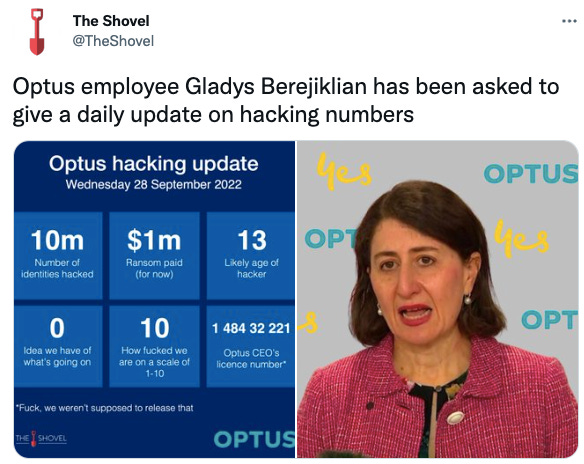Ignition Lane’s Great Big Wrap: VCs court cash, an M&A bash & Canva makes a splash
[ad_1]
The amount of capital flowing to Australian startups is down about 50% compared to the same time last year. However we have noticed an increase in raise announcements in recent weeks.
Just a few examples: Australia’s largest semiconductor company Morse Micro raised $140m led by Japanese chip giant MegaChips (they also received U.S. FCC certification), wellbeing and safety support platform Sonder raised $35m led by Blackbird, end-user device management startup Devicie raised $14m led by Insight.
So decent money is still out there. Over in the U.S., VCs have record levels of dry powder – at least US$290bn, including $162bn reserved for new investments. The last two months has seen a flurry of Aussie-related VC fund announcements, too:
Fund Freshies: Andrew “Twiggy” Forrest’s Tattarang investment group is backing a new $250m healthtech fund, Tenmile. Matt Berriman raised $20m for a new $50m fund, RealVC, which made its first investment in Livewire (gaming adtech). Ex-Deloitte execs launched CentreStone Capital (also led a $10m investment in 6clicks – GRC platform) and Azcende VC, which is looking to raise $30m.
Funds 3 & 4: Telstra Ventures closed $500m and OIF raised $140m for their third funds. Interesting read on Telstra Venture’s use of data science in investment decision making. EVP, which says it hasn’t needed to write down investments this year because its average investing valuation is 8.4x ARR, closed the first $60m of a new $100m fourth fund. Main Sequence Ventures confirmed it aims to raise $300m for its third fund.
No longer media darlings. Journalists took aim at VCs, with The AFR criticising them for their role in inflating valuations and fuelling hiring and spending frenzies last year… only to then “lectur[e] founders on the details of unit economics and the importance of cash flow.” Not wrong. The Sydney Morning Herald even took a dig at Blackbird’s “self-mythologising” mission and new bird vision inspired website.
Incidentally, Blackbird cofounder Niki Scevak has recently ramped up his Twitter meme game:
Investor finding out that the entrepreneur’s forecast was, in fact, not conservative pic.twitter.com/xfhNppY8PT
— Niki Scevak (@nikiscevak) August 23, 2022
Boys club. An SBE Australia/Deloitte/Techboard report revealed that startups with solely women founders received just 0.7% of private sector funding in FY22. Mixed gender teams received 14.2%. Alium and Regal have only invested in startups founded by men in the last four years. Boo.
Women on the move. Gabrielle Munzer was appointed as Main Sequence Ventures’ first female investing partner. OneVentures also promoted Sarah Meibusch to partner. Across the ditch, Movac partner Lovina McMurchy left the VC world to join Kry10 as COO (Movac also invested).
Hunting for capital? Keep your pitch deck concise. TechCrunch reports that investors are spending 24% less time looking at pitch decks in 2022, compared to 2021. On average, you have just 2 mins 42 secs to convince them to take a meeting with you.
Our friends at Cut Through Venture are hosting Demo Day FLIPPED on 7 Oct, where pre-seed and seed investors will pitch their funds to founders.
Canva’s new world domination strategy. A 44% valuation cut isn’t slowing Canva’s pursuit for growth. In September the company ranked #3 in the Forbes Cloud 100 and unveiled a host of new products and features, including an end-to-end visual communication platform. Complete with docs, whiteboards, a website builder and data visualisation, Canva’s Visual Worksuite will give Google Workspace and Microsoft Office a run for their money.
A lot of people missed this last week: Canva just announced a suite of new products to challenge Microsoft Office + every other productivity tool.
Here’s why I think this might be one of the most significant product announcements ever: pic.twitter.com/tfaOsuOlcC
— Turner Novak 🍌🧢 (@TurnerNovak) September 22, 2022
Seer’s green light. Seer will launch its home-based epilepsy monitoring technology in the US after receiving FDA approval.
Money or the bag? New employee share scheme regulations have come into effect in Australia, allowing companies to offer up to $30k/year in equity to employees. Related: Shopify is now letting employees decide how much of their compensation they receive in cash and equity.
Heating up. Climate Salad released its report into the climate tech industry in ANZ.
All that glitters. Martech Metigy has been placed into liquidation after failing to raise further capital. It last raised $20m in November 2020, when the company claimed to have $5m FY20 revenue, $20m forecast FY21 revenue and a customer base of more than 26,000. Regal contributed a sizeable chunk to that $20m round, at the time commenting to AdNews:
Regal Funds Management says it doesn’t take an in-person meeting to look at the numbers… “The biggest thing in early stage investing is the person, the guy or girl, that you are backing. David has had previous success in his other businesses, but he’s also just very passionate and clearly driven… We knew that he would be a good custodian of new invested money.”
Did ya just?? Administrators have since uncovered that sales totalled just $61k in FY22 and allege that Metigy became insolvent in late 2021 after providing a $7.7m loan to Director & CEO, David Faithfull, who then went on a property buying spree.

In the bin: Optus’ reputation. ICYMI Optus was hit with a gigantic data breach. We’re not sure what’s worse – the fact that the breach itself occurred or Optus’s response to customers.

In other hacking news, police in London arrested a 17 year old suspected of hacking Uber and Rockstar Games (maker of Grand Theft Auto).
Consider this a good reminder to 1. Map (and secure) your data assets, 2. Prepare/review your incident response plan, and 3. Continually educate your team to help recognise potential sources of danger. Not if, but when.
ASX says farewell to three tech cos. iSelect’s board agreed to a takeover offer from rival Innovation Holdings Australia (owns Compare the Market), valuing the business at $72 million – just 15% of its IPO market cap in 2013. Shareholders and ACCC are yet to approve the deal. ResApp agreed to a $179m takeover offer by Pfizer and delisted this week. ResApp claims to diagnose a range of respiratory conditions such as asthma and Covid-19 by recording of a cough on a smartphone. MyDeal’s acquisition by Woolies also completed, taking the marketplace off the ASX.
MYOB acquired Flare, an HR platform that provides onboarding, benefits and superannuation services to SMEs. To differentiate, MYOB wants to move beyond accounting.
French unicorn Algolia acquired Search.io, a Sydney search and discovery tech startup. Algolia is one of the largest search providers in the world.
StraxCorp is merging with Philadelphia-based CurveBeam. StraxCorp’s algorithms (spun out of Melbourne Uni) help to model a person’s anatomy and assess bone fragility. StraxCorp’s tech will combine with CurveBeam’s next-gen, low radiation CT machines.
Ento was acquired by Humanforce, an Accel-KKR backed workforce management rival. Humanforce indicated it is on the hunt for other acquisitions down under.
Ofload made its first acquisition – CIA Logistics, a Melbourne freight veteran. Ofload’s digital freight platform connects shippers and carriers, increasing shipment visibility and reducing inefficiencies.
Figma will sell to Adobe for US$20bn – its largest deal to date. With the tech and economic downturn, Adobe found an opportune time to pounce on Figma, which has won over much of the design community with its collaborative tool. Related: great essay on Figma’s brilliance (2020).
What investors first paid for @Figma, which @adobe buying for ~$40.20 per share:
$0.088: @dannyrimer/@IndexVentures, @semil, Jacobsen/OATV
A $0.199: @johnolilly/@GreylockVC
B $0.332: @mamoonha/@kleinerperkins
C $1.098: @andrew__reed/@sequoia
D $4.619: Peter Levine/@a16z— Rolfe Winkler (@RolfeWinkler) September 15, 2022
[ad_2]

